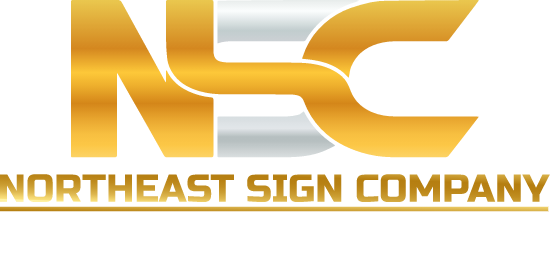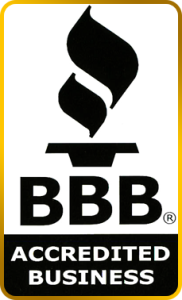One crucial aspect of designing custom signage is choosing the right sign materials. Selecting a material doesn’t only affect the look of your sign – it can also influence a sign’s shape, size, and installation site. If you’re currently examining the benefits and drawbacks of different materials, this sign material selection guide will identify the key factors worth considering.
Pros and Cons of Wood Signs
Wood is commonly used for lobby, hanging, and logo signs. If you are drawn to the warmth and natural look of these signs, it’s essential to look at their pros and cons:
Pros
- Traditional and rustic look: Wood signs have a timeless style, allowing them to remain popular for decades. This sign material is ideal if you want to communicate stability and a connection to nature.
- Eco-friendly sign material: Sustainably sourced wood is a material that benefits the environment. You can reduce your environmental impact with these signs, knowing your sign won’t create additional waste.
- Variety of finishes and techniques: Wood can be painted, sand-blasted, or stained to customize your sign to your business. Work with a professional sign company to fine-tune every detail of your custom sign.
Cons
- Cost in comparison to other materials: Wood has a higher price tag than synthetic materials. Depending on your sign's size, scope, and detail, these costs can quickly add up.
- Regular maintenance is required: Wood signs need regular upkeep to stay fresh. It’s also important to factor in maintenance costs when considering these signs.
- Not suitable for all outdoor locations: Wood can be susceptible to damage from moisture, wind, bugs, and debris. While there are durable options available that can withstand the elements, it is crucial to work with a professional sign maker if you’re considering this material for outdoor signage.
Pros and Cons of Acrylic Signs
Acrylic is a versatile and durable plastic used for interior and exterior signage. The customization potential of acrylic makes it a popular option for business signage, including door plaques and storefront signs. A professional sign company will inform you of acrylic’s pros and cons, including:
Pros
- Affordable option: Acrylic signs are available at many different price points and are considered one of the more affordable sign materials. It’s easy to customize these signs to fit your budget.
- Lightweight alternative: Transparent acrylic signs are lightweight but mimic the look of glass. Since these signs are lighter, fewer installation restrictions allow you to place them in unconventional locations.
- Many customization options: Different printing processes can add depth and dimension to your sign. Acrylic is easy to color and has various finishes to match your branding strategy.
Cons
- Not ideal for every climate: Heat and UV rays can damage acrylic signs. For this reason, they may not be suitable for exterior signage or areas with direct sunlight.
- Difficult to repair: Most acrylic signs are shatter-proof, but they are challenging and costly to repair if they do crack. In some cases, you may be required to order a new sign if the damage is extensive.
- Sensitive to scratches: Since acrylic scratches easily, extra care must be taken in high-traffic areas and during maintenance. Be sure to keep these signs away from door handles, sharp furniture corners, or equipment that could damage these signs.
Pros and Cons of Metal Signs
Metal has a reputation for strength and stability. These signs are built to last and provide a timeless look to businesses. These signs have many practical applications and are commonly used for road and construction signs. Familiarize yourself with the benefits and disadvantages of this sign material:
Pros
- Strong and durable sign materials: Metal signs can endure harsh weather and damage, providing a dependable signage solution for years.
- Ideal for exterior signage: Metal is the answer if you’re looking for an exterior signage solution. Besides its durability, metal comes in a variety of finishes, making it ideal for road signs, building signs, and dimensional letters.
- Easy to clean and maintain: Metal signs are low-maintenance and only require occasional cleaning.
Cons
- Heavy: Depending on the sign material used, metal can be heavy, which may require special permits and a complicated installation process. Their weight could also limit where these signs are displayed.
- Expensive: Different metals are suitable for a range of budgets, but commonly this material is more costly than other types of signage.
- Prone to corrosion: Some metals, like steel, can corrode in climates with high moisture levels.
Explore Custom Sign Materials with Northeast Sign Company
Not sure where to start your sign project? Need help choosing suitable materials? Are you wondering about the differences between wood vs. acrylic vs. metal signs? Let the experts at Northeast Sign Company expertly answer your questions.
Our passion is finding the right sign for your business. All our products are crafted with excellence and quality – the key is selecting a sign that communicates your message in Connecticut.
Contact us today to get started on your project.




